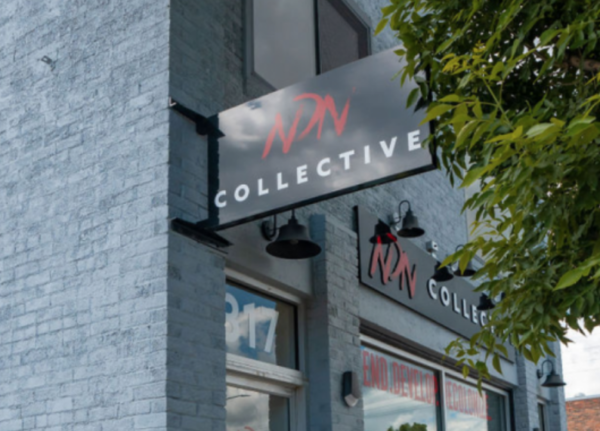
- Details
- By Native News Online Staff
RAPID CITY, S.D. — NDN Collective, Inc. announced a new project Thursday that will provide grants, communication and strategic support to tribal nations, Indigenous-led organizations and individuals providing essential services to Indian Country.
The Rapid City, S.D.-based nonprofit organization said the $10 million, multi-phased project has been launched with an initial investment of $3.5 million from NDN’s partners. NDN Collective is actively seeking additional resources to bolster immediate on-the-ground responses and long-term emergency, transition and recovery planning.
The response project is designed to provide quick-response resources to Indigenous communities bracing from economic impacts, stresses to public services and combating the spread of misinformation due to COVID-19. Funding will be made for those in Indian Country for:
- Medical supplies
- Food delivery
- Youth and / or Elder care
- Educational Access
- Shelter and Housing
- Economic Relief
- Social - Emotional Support
- Cultural, Ceremonial, Spirit-Aligned Support
- Information and Communications — Access to accurate information; Radio/T.V., Internet
“NDN realizes that Native Nations will experience unique impacts and challenges with the COVID19 crisis, in no small part due to the current reality and history of social, economic and political disenfranchisement of our people,” NDN President and CEO Nick Tilsen said in a statement. “While our elected Tribal officials navigate the crisis and lead their respective communities, NDN is doing our part to coordinate resources and offer our assistance during these unprecedented times.”
Initially, the Response Project will concentrate on supporting tribal essential services to mitigate the impact of COVID-19 in tribal communities while awaiting resources from the federal stimulus package to reach tribes and Indigenous urban communities.
“While the federal stimulus package has some great resources that will soon be available for tribes and tribal serving organizations, many frontline groups, rural and understaffed Tribes will be at a disadvantage to gain access to those resources,” said Michael Johnson, collective director of advancement for NDN. “NDN’s Project is meant to bolster and support existing services and make sure that our people have access to essential services during this time.”
Through this project, NDN is prioritizing requests that demonstrate experience and capability and can detail the effect of immediate response planning, access to expanded health care services, adequate housing, and additional food and supplies that will benefit their communities.
To learn more about the NDN Covid-19 Response Project grants, announcements and resources can be found on the NDN Collective CLICK HERE.
More Stories Like This
Native News Weekly (August 25, 2024): D.C. BriefsUS Presidents in Their Own Words Concerning American Indians
Two Murdered on Colville Indian Reservation
NDAA passes House; Lumbee Fairness Act Advances
NFL, Vikings to Host Native All-American Game, Youth Flag Clinic
Help us defend tribal sovereignty.
At Native News Online, our mission is rooted in telling the stories that strengthen sovereignty and uplift Indigenous voices — not just at year’s end, but every single day.
Because of your generosity last year, we were able to keep our reporters on the ground in tribal communities, at national gatherings and in the halls of Congress — covering the issues that matter most to Indian Country: sovereignty, culture, education, health and economic opportunity.
That support sustained us through a tough year in 2025. Now, as we look to the year ahead, we need your help right now to ensure warrior journalism remains strong — reporting that defends tribal sovereignty, amplifies Native truth, and holds power accountable.
 The stakes couldn't be higher. Your support keeps Native voices heard, Native stories told and Native sovereignty defended.
The stakes couldn't be higher. Your support keeps Native voices heard, Native stories told and Native sovereignty defended.
Stand with Warrior Journalism today.
Levi Rickert (Potawatomi), Editor & Publisher

